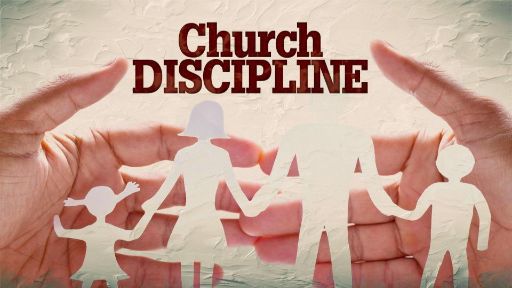-
Compassionate Confrontation Series
Contributed by Jeffery Anselmi on Nov 28, 2017 (message contributor)
Summary: A revamp of an earlier sermon. There are times when we will need to confront people. How are we called to do it?
INTRODUCTION
SLIDE #1
Last week we looked at the importance of harmony within the church family. Harmony is something that we must work on to keep, each of us needs to do our part.
Today I want to follow up on the issue of harmony with a message on what to do when someone is out of harmony with the rest of the body. What do we do when someone is out of step with the rest of the church?
What do we do with the person who is a part of the body of Christ who is continually stirring the pot to cause strife? What do we do with the person who refuses to be obedient to Jesus in their life?
How do we deal with a person who is caught up in the web of sin in their life?
Do you see how these situations can be a disruption to the harmony within the family?
More times than not these situations are dealt with by just ignoring them, I have been guilty of that myself. We are afraid to make someone upset or we are afraid they will leave the church if we say anything.
As these situations arise in the church, the way they are dealt with can cause a lot of harm to the church body and to its reputation in the community. The way we deal with these situations can also be a way to bring glory to our God.
The title to the message today is Compassionate Confrontation. I use that term because there are times when we need to confront people for their own good and the good of the body of Christ. When we confront with the right spirit, for the right reasons following the right path, and striving for the right outcome, confrontation is the compassionate thing to do.
Sweeping everything under the carpet hoping it will go away is not a good way to deal with issues. Many times when things are ignored, the problem becomes bigger and bigger.
Former Miami Dolphins coach Don Shula was quoted as saying the following while he was talking to a reporter about a player’s mistake in practice: He said, "We never let an error go unchallenged. Uncorrected errors multiply." Then the reporter said, "Isn’t there benefit in overlooking one small flaw?" Shula said, "What is a small flaw?" I think about that all day long. What is a small flaw?
I see that with my children. I’ve let a lot of things slide by because I was too tired. I didn’t want another confrontation. But uncorrected errors do multiply. You’ve got to face them some day.
You might as well face them on the spot. If I could do it over again with my children, I’d face the errors on the spot. It’s easier on them and on you. That works in relationships with anyone. http://www.christianglobe.com/Illustrations/theDetails.asp?whichOne=c&whichFile=confrontation
SLIDE #2
SERMON
I. CONFRONTATION SHOULD BE DONE IN THE CORRECT SPIRIT. GALATIANS 6:1
When it looks like there is a need to confront someone over an issue that is jeopardizing church harmony we must go into it with the correct spirit. We must be sure before we confront someone; we must spend a lot of time in prayer over the issue.
We do not want to run ahead of God. We want to make sure we say the right things and that what we say comes across in a loving caring manner.
Too many times confrontation is marred by anger, angry comments and angry attitudes.
SLIDE #3
GALATIANS 6:1 says: Brethren, even if anyone is caught in any trespass, you who are spiritual, restore such a one in a spirit of gentleness; each one looking to yourself, so that you too will not be tempted.
It is easy to have a mean-spirited attitude towards the person who needs to be confronted. In end of the fifth chapter of Galatians, Paul speaks of the deeds of the flesh and how those who practice such things will not inherit the kingdom of God.
Instead of having a hatful spirit towards people who are on the wrong path, we are called to have a spirit of gentleness. We are to be gentle with people as we try to help them.
We are also called to guard against building ourselves up at the expense of others. Notice that we are told we are to look to ourselves so that we will not be tempted.
We also need to realize we could easily be the one who is in need of correction. We are capable of doing the same thing as the one we are trying to help.
SLIDE #4

 Sermon Central
Sermon Central



